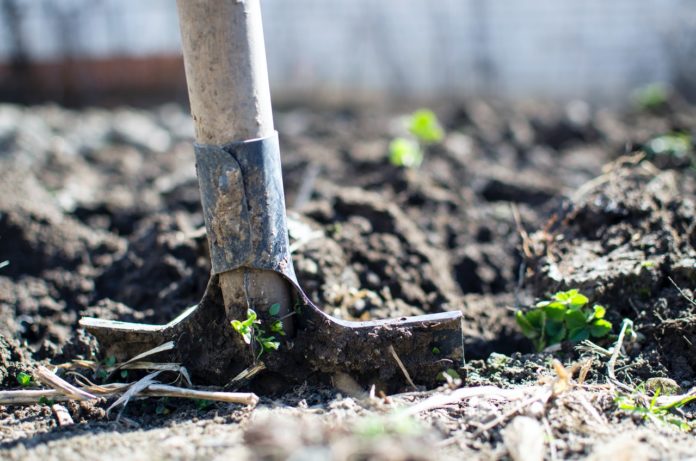In Elsies River on the Cape Flats, Lucelle Campbell is part of a community garden, Oppie Yaart. Food security in South Africa is an important issue in South Africa. Interest in indigenous ingredients has increased recently. Oppie Yaart marries food security with indigenous practises to foster a culture of inclusiveness. The Daily Vox chatted to Campbell about sustainable living in our communities.
Related
These startups and community projects are providing food during COVID-19
BACKGROUND
The vision for sustainability was clear from the start for Campbell and her spouse Melissa when Oppie Yaart came to fruition. They wanted to create a safe green space in the heart of Elsies, and share it with their community. Campbell is originally from Elsies River, and moved back a few years ago after she got married.
“This space was so beautiful, and the soil was so abundant for growth. We started to grow mostly indigenous herbs as a way to reconnect with our lost heritage and culture,” said Campbell. Two other people are part of their collective with their own particular skill-set. Robert is the resident “water saver”. Oppie Yaart is still using water collected from the last rainy season. Robert is also their wood-cutter.
“These were the kinds of jobs our ancestors had before colonisation. There was a job for everybody,” Campbell said.
In 2017 they installed a greywater system with Guerilla House, an urban permaculture organisation. Greywater is gently used water from bathroom washing machines. It is not water that has come into contact with your toilet. Greywater is a safe and beneficial source of irrigation water in a yard. Sustainable living not only forms part of the collective, but also Campbell’s day to day. They have a compost toilet, and recycle regularly. A compost toilet is a no-flush one that turns solid waste into compost.
Herbs
Growing herbs is the collective’s core vegetation at the moment. They also grow fruit and vegetables. The idea is rooted in sharing and giving back. “We want to greenify everything with love. This is also a safe space for marginalised people,” said Campbell.
Campbell has been making immune boosters from ancestral medicines long before the pandemic. Kruidjie-roer-my-nie (Melianthus major) is a plant used to treat septic wounds, sores, bruises, backache and rheumatic joints. It grows in abundance on Oppie Yaart.
During the 2020 level five covid restrictions, the South African government banned the sale of cigarettes. Campbell started making a booster that could be smoked called “holy smokes”. It is organic with no tobacco or chemical compounds. The collective also trades with other growers.
Heritage
Campbell said the garden is about reconnecting with one’s past and healing trauma.Oppie Yaart encourages a shift toward African knowledge. They want people from all walks of life to reconnect with the land.
“We cultivate lost knowledge that taps into our African selves. It is important to give back to your community. We want to heal our communities. The people in our community also contribute to the skills we are learning every day,” Campbell said.
Indigenous South Africans roamed the Cape Flats , and stone tools were found here, Campbell explained. The culture of sharing is also embedded in these places. “Like my mother who always cooked extra, because you never knew who else may turn up,” she said.
Campbell said all of these areas were informal settlements too. So there were lots of intergenerational working struggles for the people. “Our ancestors used so many herbs like Als and kankerbossie. It is important that we talk about our history and quell erasure of indigenous South Africans,” she said.
They don’t operate as a traditional business and prefer to barter. “If someone only has a five rand, we accept what people can give”, said Campbell.
Related
We speak to Khanya Mzongwana on growing food and your life
Future Plans
Oppie Yaart has partnered with the Triangle Project for three weeks to teach people to grow food and herbs. The first few classes will focus on soil fertility and understanding the soil. Campbell is confident the project will continue after its pilot phase. They have acquired another green space called Atlas where learners will be taught.
“We are teaching about making the most of your space, no matter how small. We are sustaining ourselves and our neighbourhoods”, said Campbell.
“With love and commitment anyone can do this. We have such contrasts here. We hear church bells, gunshots and the birds chirping. But we are always one with our environment,” said Campbell.
Related
By-laws that govern urban farming need to find common ‘soil’ for food security









